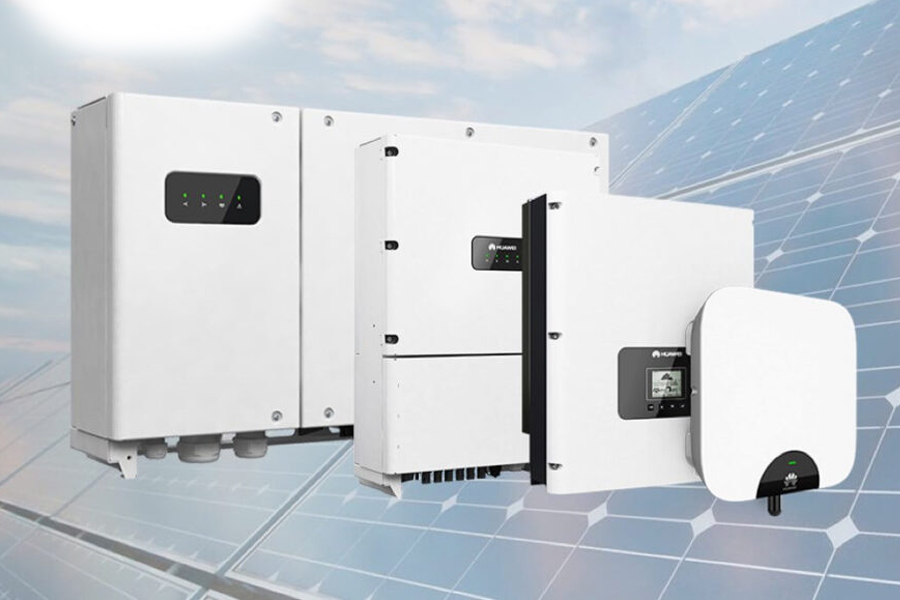Inverter: Power Your Life Anywhere, Anytime
An inverter is a device that converts direct current (DC) power into alternating current (AC) power. It allows you to power your electronic devices and appliances that require AC power when you don’t have access to a traditional AC power source.
Inverters are commonly used in situations where AC power is unavailable or unreliable, such as during power outages, camping trips, outdoor events, or in remote locations. They are also useful for vehicles like cars, boats, or RVs that operate on DC power but need to run AC-powered devices.
Inverters come in various sizes and capacities, ranging from small portable units to larger, more powerful models. Portable inverters are designed to be lightweight and compact, making them easy to carry and transport. They often feature built-in AC outlets or USB ports, allowing you to directly plug in and power your devices.
The power output of an inverter is measured in watts and can vary depending on the model. When choosing an inverter, it’s important to consider the power requirements of the devices you plan to use with it. Make sure the inverter’s power rating is sufficient to handle the combined wattage of your devices.
Inverters typically use battery power as their input source. So, if you’re using an inverter in a location without access to the electrical grid, you’ll need to have a suitable battery or power source to connect to the inverter. Some inverters may include built-in batteries, while others require an external battery or connection to a vehicle’s battery.
It’s important to note that not all electronic devices are compatible with inverters. Certain appliances with high power demands, such as air conditioners or heavy-duty machinery, may require specialized inverters capable of handling their power requirements. Always check the specifications and compatibility of your devices before using them with an inverter.
In conclusion, an inverter is a versatile device that allows you to power your electronic devices and appliances using DC power sources, such as batteries. Whether you’re camping, experiencing a power outage, or on the go, an inverter provides a convenient way to have AC power anywhere, anytime.
The benefits of using an inverter to power your life anywhere, anytime are numerous. Here are some key advantages:
- Portability: Inverters are available in portable designs, allowing you to take them with you wherever you go. Whether you’re camping, traveling in an RV, or working in a remote location, you can easily bring an inverter along to power your devices.
- Convenience: With an inverter, you can enjoy the convenience of using your electronic devices and appliances that require AC power, even in areas without access to grid electricity. This means you can charge your smartphones, laptops, and tablets, and run small appliances like fans, lights, or a mini-fridge when you need them.
- Emergency Power Backup: Inverters are incredibly useful during power outages. When the grid power fails, you can rely on an inverter connected to a battery to provide temporary power for essential devices like lights, communication devices, or medical equipment.
- Versatility: Inverters are compatible with a wide range of devices, including electronics, kitchen appliances, power tools, and more. As long as the inverter’s power capacity matches the device’s requirements, you can power various devices simultaneously or individually.
- Energy Efficiency: Inverters have become more energy-efficient over the years, minimizing power loss during the conversion process. This efficiency ensures that the energy stored in the battery is effectively utilized, giving you more runtime for your devices.
- Off-Grid Living: Inverters are popular among people living off the grid, such as those in remote areas or in sustainable living situations. They allow individuals to power their homes or cabins with renewable energy sources like solar panels or wind turbines, storing the energy in batteries and using the inverter to convert it into usable AC power.
- Reduced Noise and Emissions: In comparison to traditional generators, inverters are generally quieter and produce lower emissions. This makes them more environmentally friendly and suitable for camping trips or outdoor events where noise pollution and air pollution need to be minimized.
- Cost-Effective: Investing in a quality inverter can save you money in the long run. Instead of relying on fuel-powered generators or having to access grid electricity, which may involve costs or infrastructure limitations, an inverter offers a cost-effective solution for meeting your power needs.
In summary, using an inverter to power your life anywhere, anytime provides portability, convenience, emergency backup, versatility, energy efficiency, and the ability to live off the grid. It offers a reliable and flexible power solution for various situations, making it an essential tool for individuals seeking reliable AC power in diverse environments.



